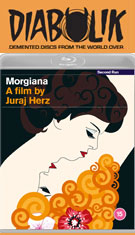
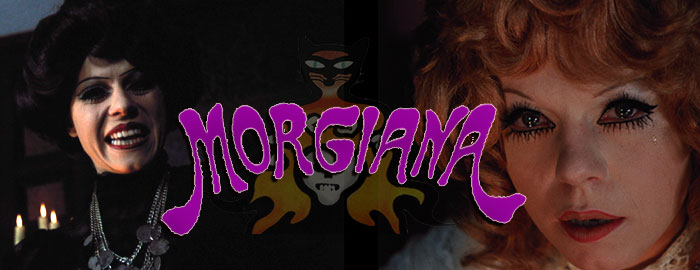
Color, 1972, 97m.
Directed by Juraj Herz
Starring Iva Janžurová, Josef Abrhám, Nina Divíšková
Second Run (Blu-ray & DVD) (UK R0 HD/PAL), Studio Hamburg Enterprises (Blu-ray & DVD) (Germany RB/R2 HD/PAL)
Best known 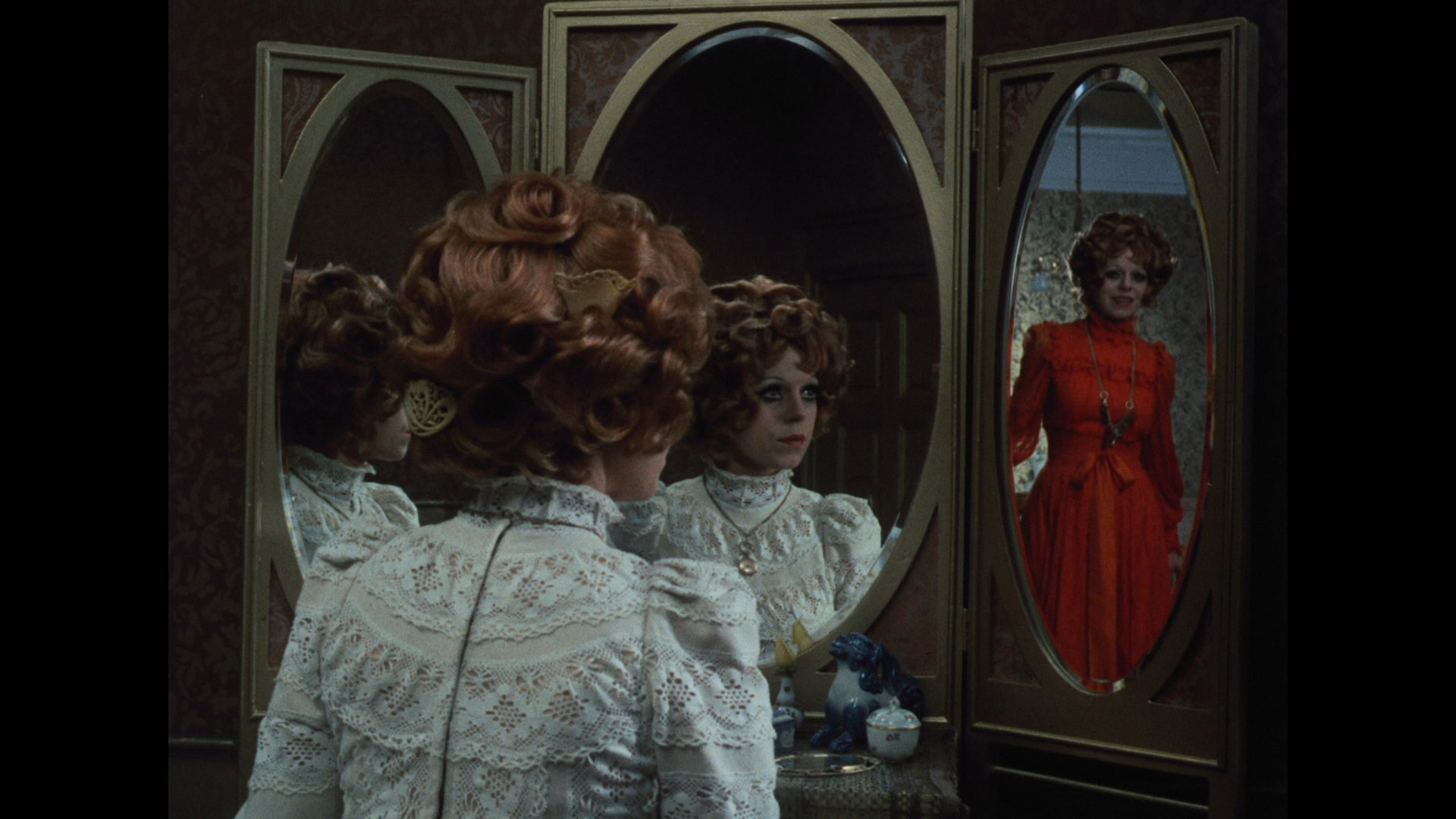 globally for his unforgettable The Cremator, Czechoslovak filmmaker Juraj Herz successfully traversed the worlds of the art house and
globally for his unforgettable The Cremator, Czechoslovak filmmaker Juraj Herz successfully traversed the worlds of the art house and 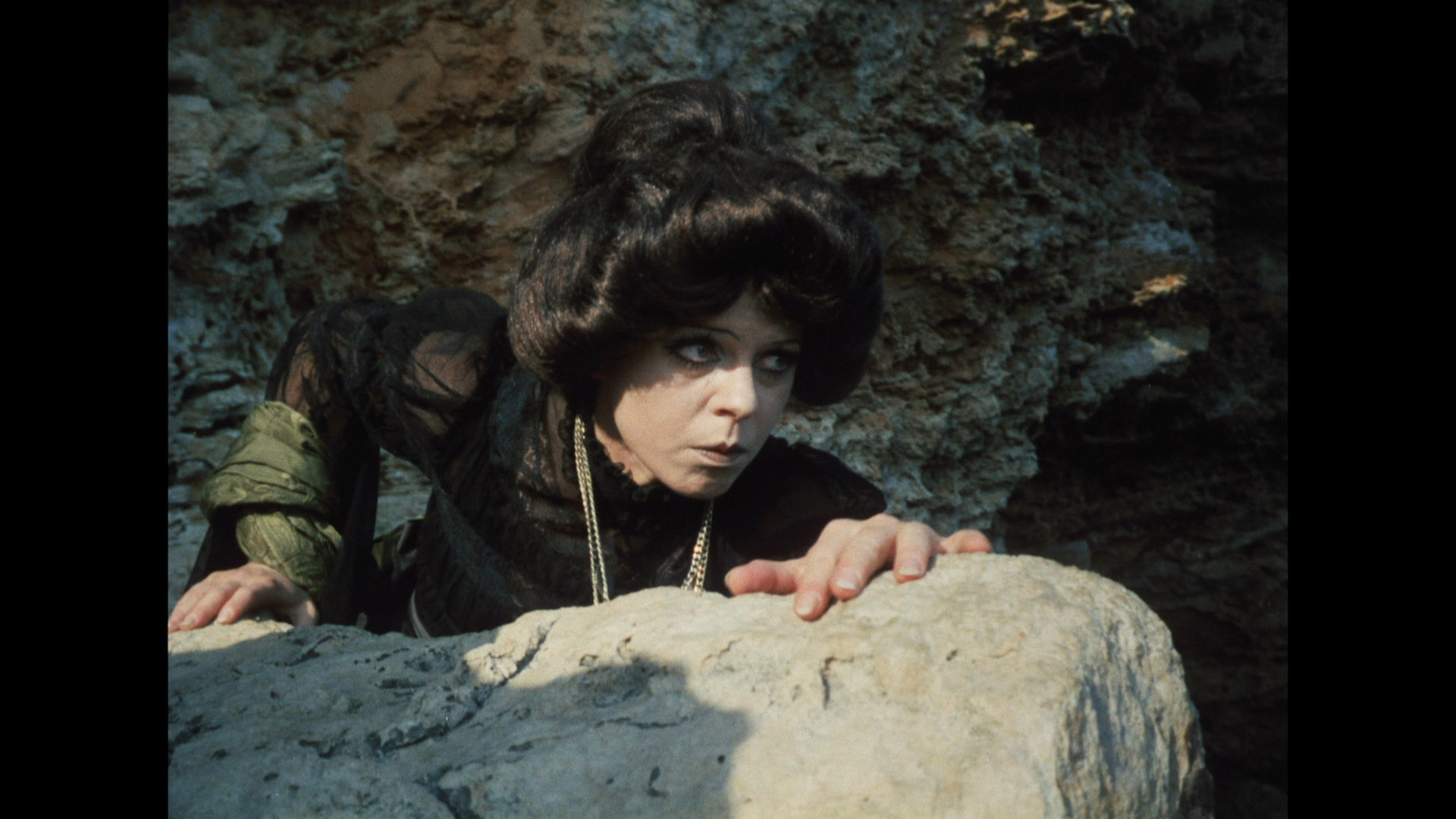 horror film several times over the course of his decades-long career from his macabre twist on Beauty and the Beast to 2009's Darkness. One of his finest films is 1972's Morgiana, a terrific little Gothic chamber piece that became a hit on the VHS bootleg circuit following a subtitled airing on Australia's SBS. An official DVD turned up in 2010 in the U.K. from Second Run, which catapulted the film's reputation even further and remains one of the label's most significant releases to date. Since then it's become a staple of discussions and retrospectives involving the Czechoslovak New Wave, though horror fans still haven't quite caught up to this one.
horror film several times over the course of his decades-long career from his macabre twist on Beauty and the Beast to 2009's Darkness. One of his finest films is 1972's Morgiana, a terrific little Gothic chamber piece that became a hit on the VHS bootleg circuit following a subtitled airing on Australia's SBS. An official DVD turned up in 2010 in the U.K. from Second Run, which catapulted the film's reputation even further and remains one of the label's most significant releases to date. Since then it's become a staple of discussions and retrospectives involving the Czechoslovak New Wave, though horror fans still haven't quite caught up to this one.
Based on a tale by Russian horror writer Aleksandr Grin, the story sounds like a period twist on killer-twin potboilers like Dead Ringer00 but the execution here is another story entirely. Iva Janzurov excels here in dual roles as Klára and Viktoria (or Clara and Victoria, depending on the subtitles), twin sisters whose recently deceased father has left them in charge of their sprawling estate. Loving only her cat Morgiana, Viktoria decides to poison her sister to death (very slowly) because she lusts after Klára's boyfriend and her half of the money, but the plan is complicated by blackmail, Klára's increasingly hallucinatory reactions to the poison, and a few Poe-like twists of fate. Once again the style here is wild and technically audacious, this time augmented with blazing color including vibrant Gustav Klimt-style painted opening credits and quasi-Victorian production design that perfectly echoes the theatricality of the performances. This would actually make a terrific double feature with Fassbinder's Martha, which came 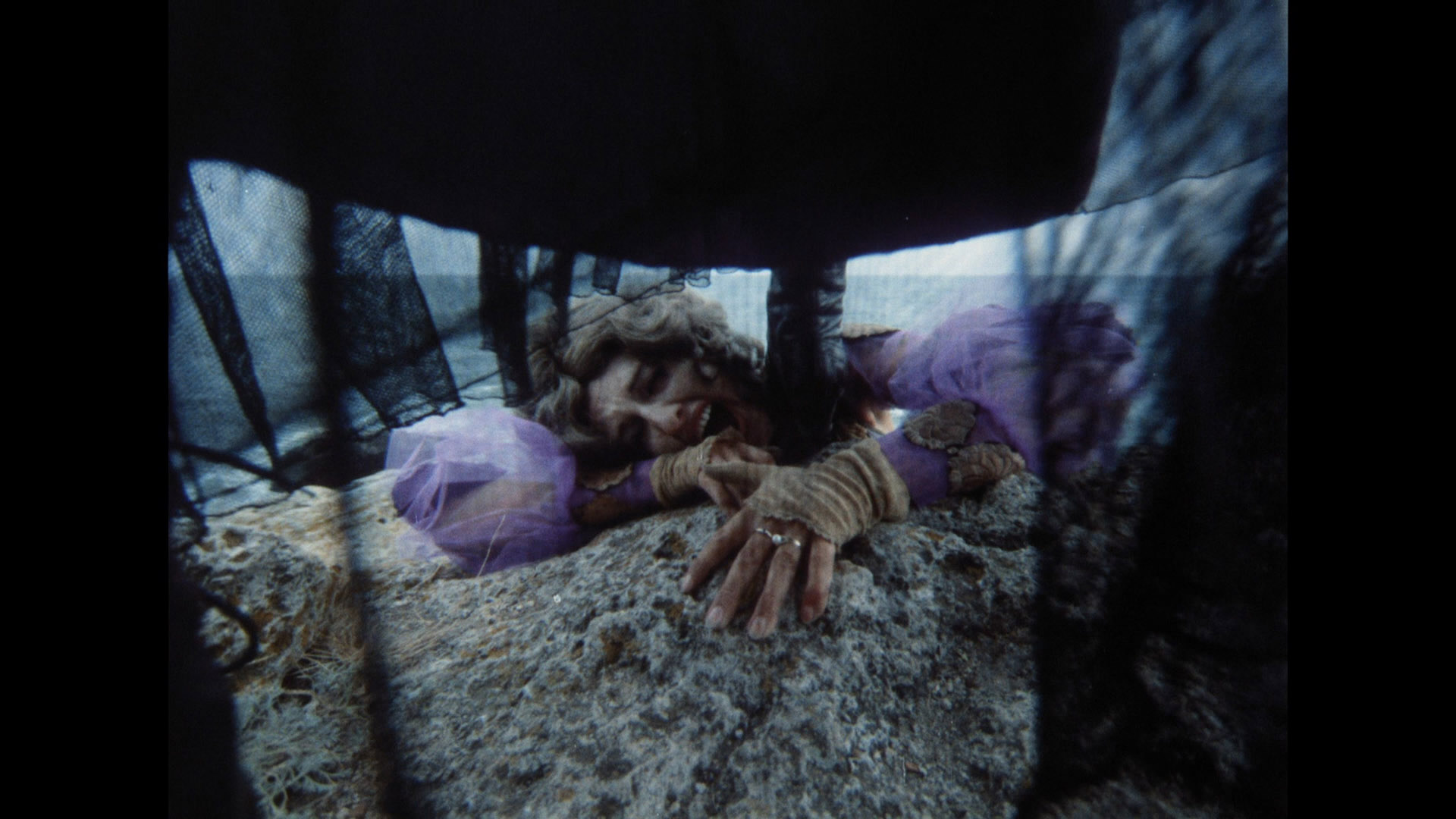 out
out 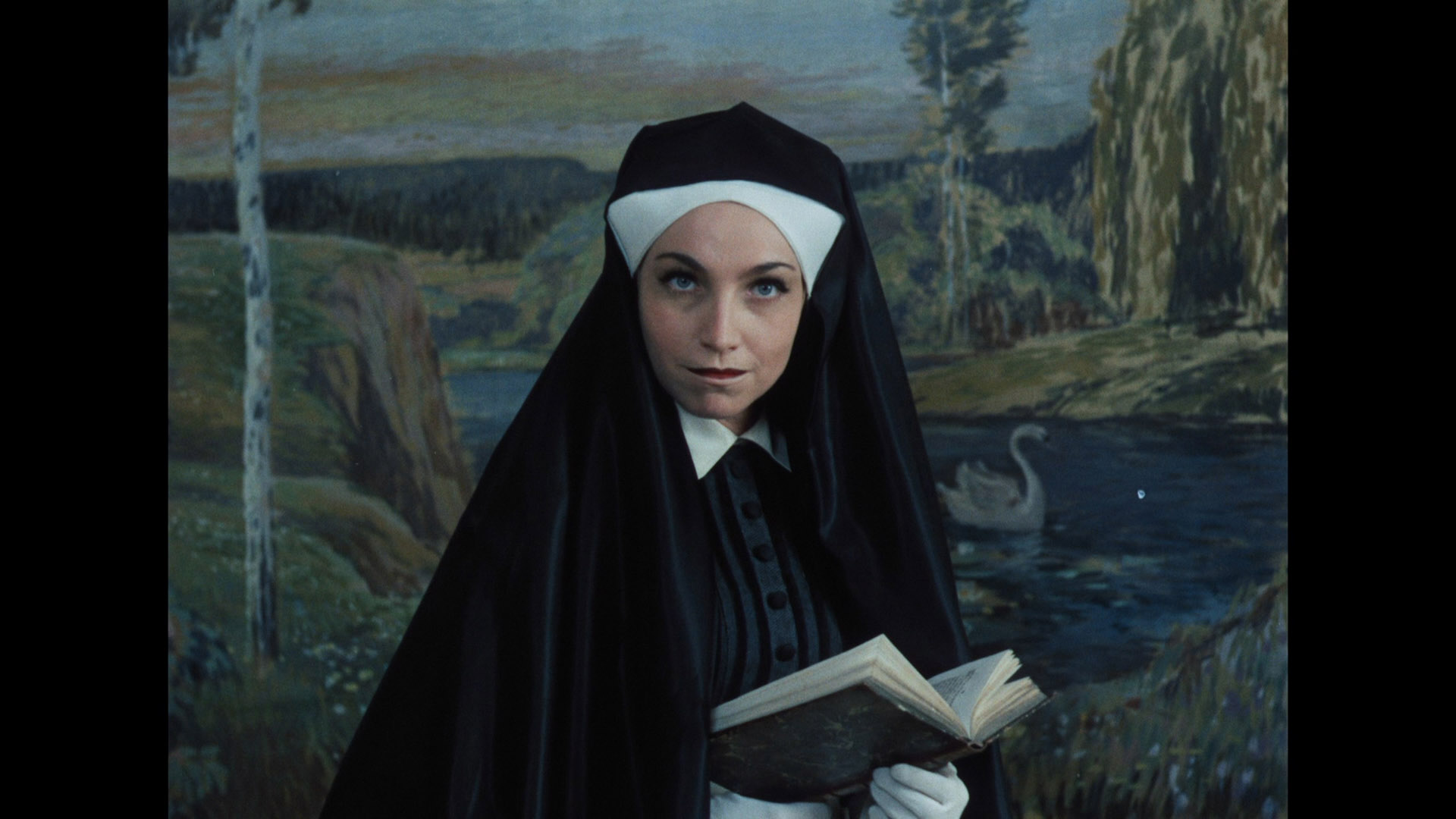 two years later and nicely plays off both the look and performances of this film. Significantly it also features some nifty wide angle "cat cam" shots way before Lucio Fulci and Dario Argento dabbled with the same idea in their versions of Poe's "The Black Cat."
two years later and nicely plays off both the look and performances of this film. Significantly it also features some nifty wide angle "cat cam" shots way before Lucio Fulci and Dario Argento dabbled with the same idea in their versions of Poe's "The Black Cat."
According to reports, Herz intended to follow the original story's lead with a Fight Club-style plot twist at the end that got nixed by the censors.
Even without this bit of narrative trickery, the film functions perfectly well on its own and still contains little nods to the original concept, while the device of using the same actress for the leading roles is accomplished with numerous clever bits of cinematic sleight of hand that will have many film buffs reaching for the rewind button. The Second Run DVD was a godsend at the time, in great shape apart form some print damage here and there, and the full frame transfer is quite satisfying overall and features their usual excellent optional English subtitles. (It was previously available on Japanese and Czech DVD but with no English subtitle options.) Herz himself appears for a 15-minute interview in which he talks about the genesis of the film and the compromises involved, as well as his own opinion of his place alongside but not quite in the Czech New Wave. Daniel Bird provides thorough liner notes booklet in which he focuses on Herz's output following the breakthrough of The Cremator and this film's issues with the authorities.
In 2019, Studio Hamburg Enterprises released limited edition Blu-ray and DVD versions of the film with optional German or English subtitles, featuring the original Czech audio or two different German dub tracks. Extras include the entire marvelous soundtrack by Luboš 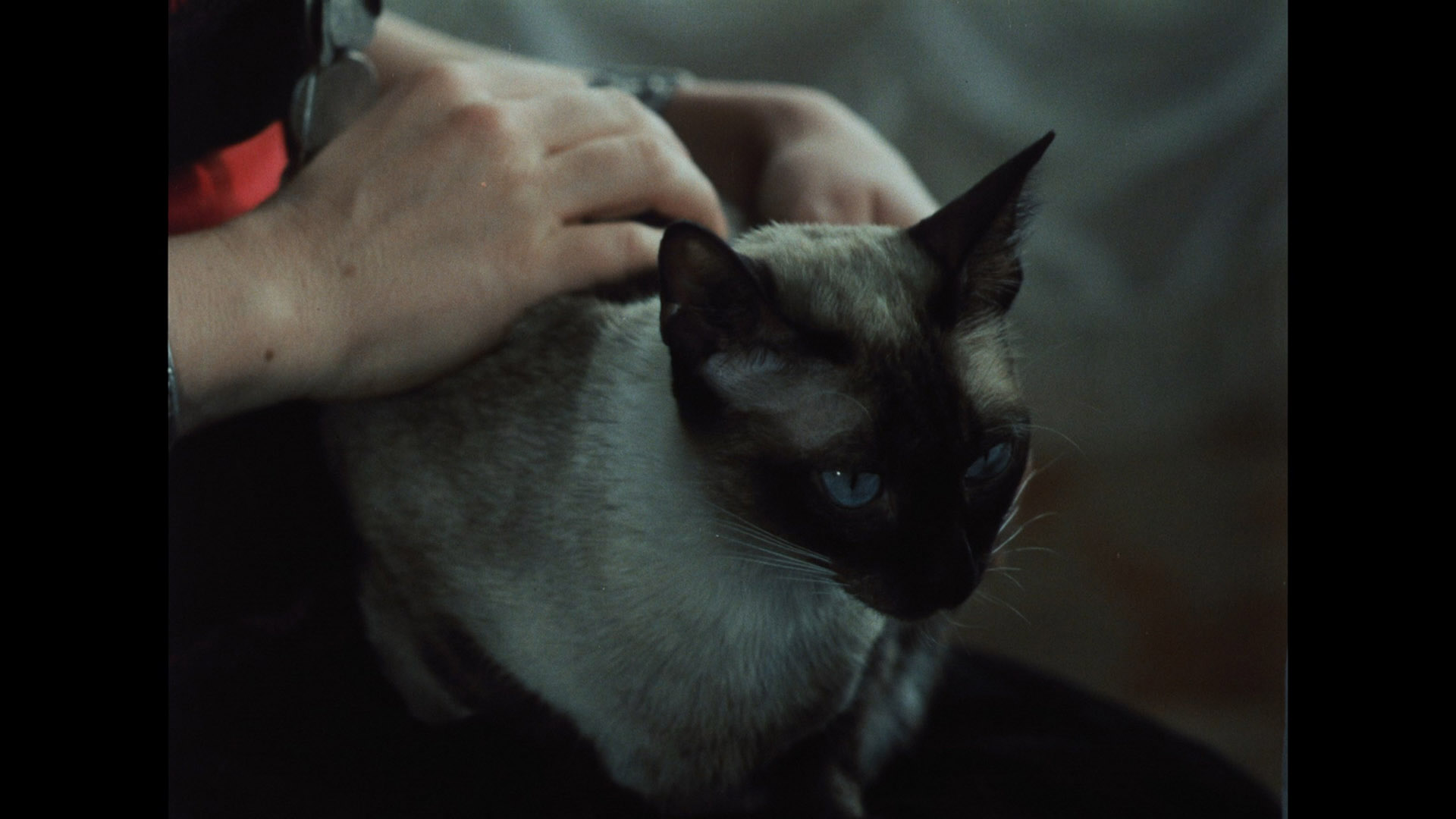 Fišer (which is available separately from Finders Keepers), an image
Fišer (which is available separately from Finders Keepers), an image 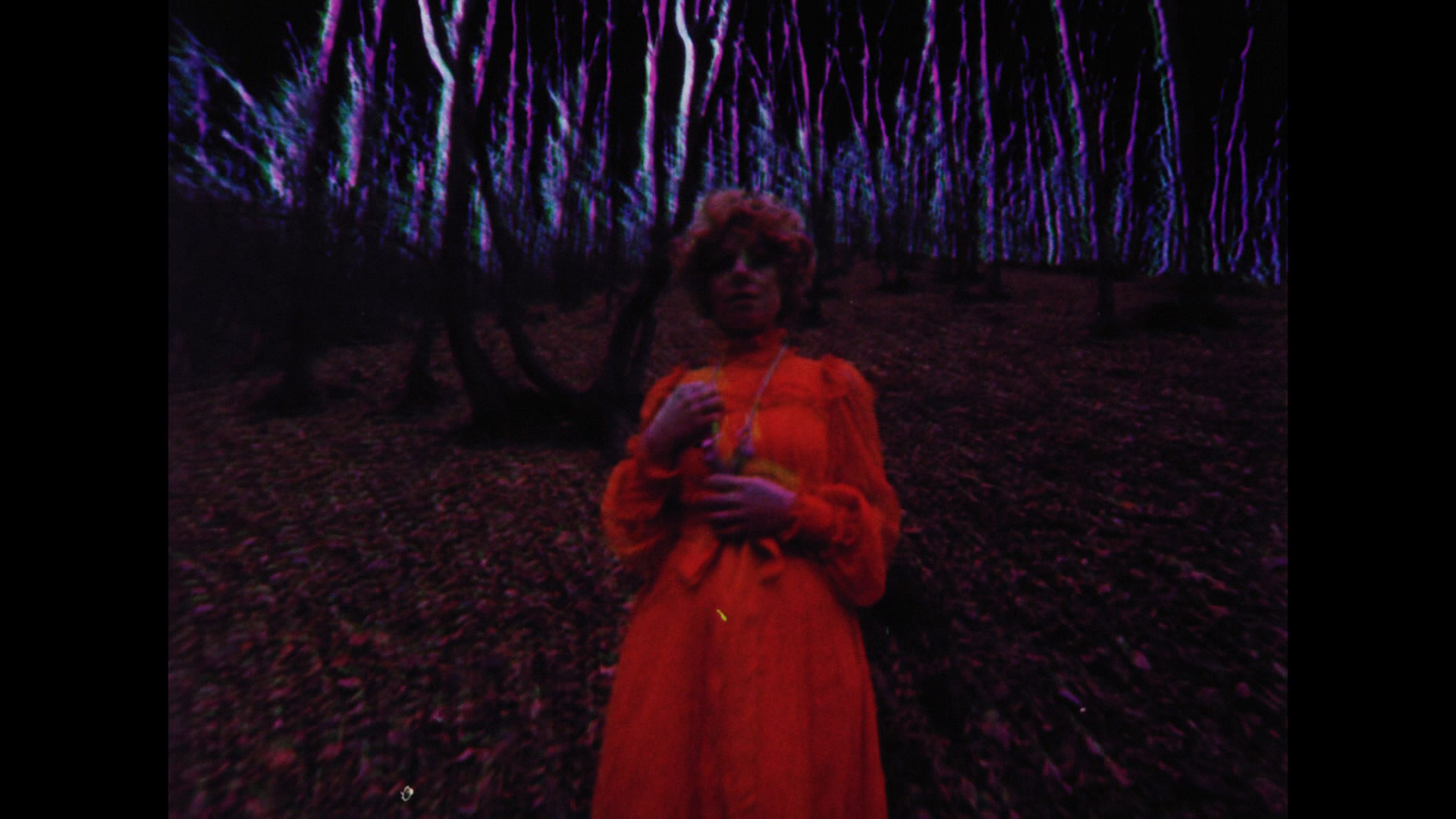 gallery, and clips from two other Herz films on Blu-ray, Beauty and the Beast and Ferat Vampire. In 2023, Second Run upgraded Morgiana to Blu-ray with an expanded special edition, featuring a virtually identical presentation as the prior Blu-ray thanks to a solid transfer "from the best existing original materials created by the Czech National Film Archive." Some occasional flecks pop up, but the color and detail are strong throughout with a more neutral, bright appearance compared to the yellow cast of the DVD. The Herz interview is ported over here as are the liner notes by Bird, augmented here with an additional essay by Ian Conrich, "A Czech Cinema of the Gothic," analyzing the themes of violence, obsession, and control in this film and The Cremator. Included here as an audio commentary track is a brisk 2020 episode of The Projection Booth podcast featuring Mike White, Kat Ellinger and Ben Buckingham waxing about all things Herz including their first encounters with this film, the necessities of multiple viewings, the issues that tripped up the project with the forces that be, and the finer points of Janžurová's remarkable performance(s).
gallery, and clips from two other Herz films on Blu-ray, Beauty and the Beast and Ferat Vampire. In 2023, Second Run upgraded Morgiana to Blu-ray with an expanded special edition, featuring a virtually identical presentation as the prior Blu-ray thanks to a solid transfer "from the best existing original materials created by the Czech National Film Archive." Some occasional flecks pop up, but the color and detail are strong throughout with a more neutral, bright appearance compared to the yellow cast of the DVD. The Herz interview is ported over here as are the liner notes by Bird, augmented here with an additional essay by Ian Conrich, "A Czech Cinema of the Gothic," analyzing the themes of violence, obsession, and control in this film and The Cremator. Included here as an audio commentary track is a brisk 2020 episode of The Projection Booth podcast featuring Mike White, Kat Ellinger and Ben Buckingham waxing about all things Herz including their first encounters with this film, the necessities of multiple viewings, the issues that tripped up the project with the forces that be, and the finer points of Janžurová's remarkable performance(s).
SECOND RUN (Blu-ray)
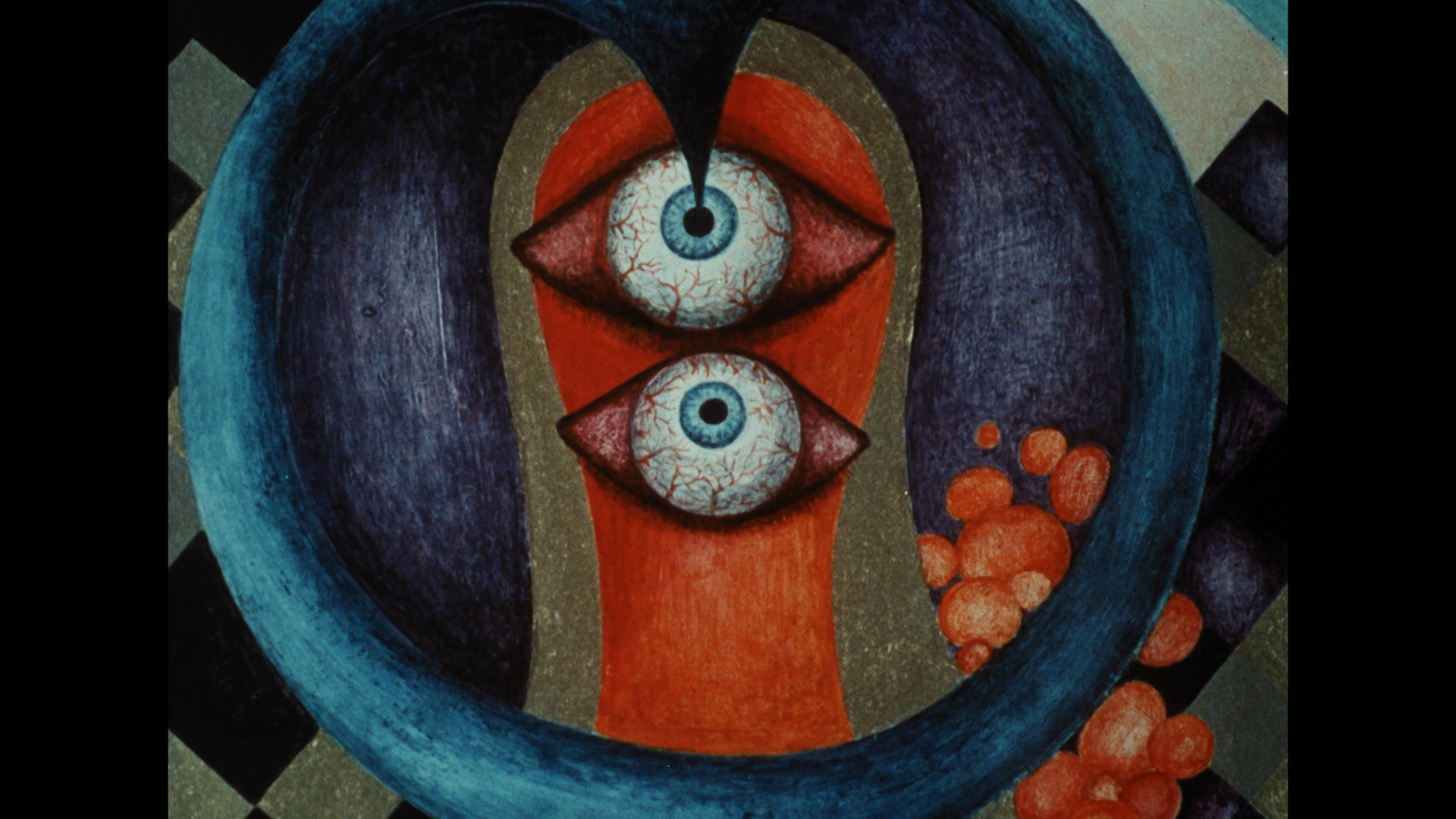
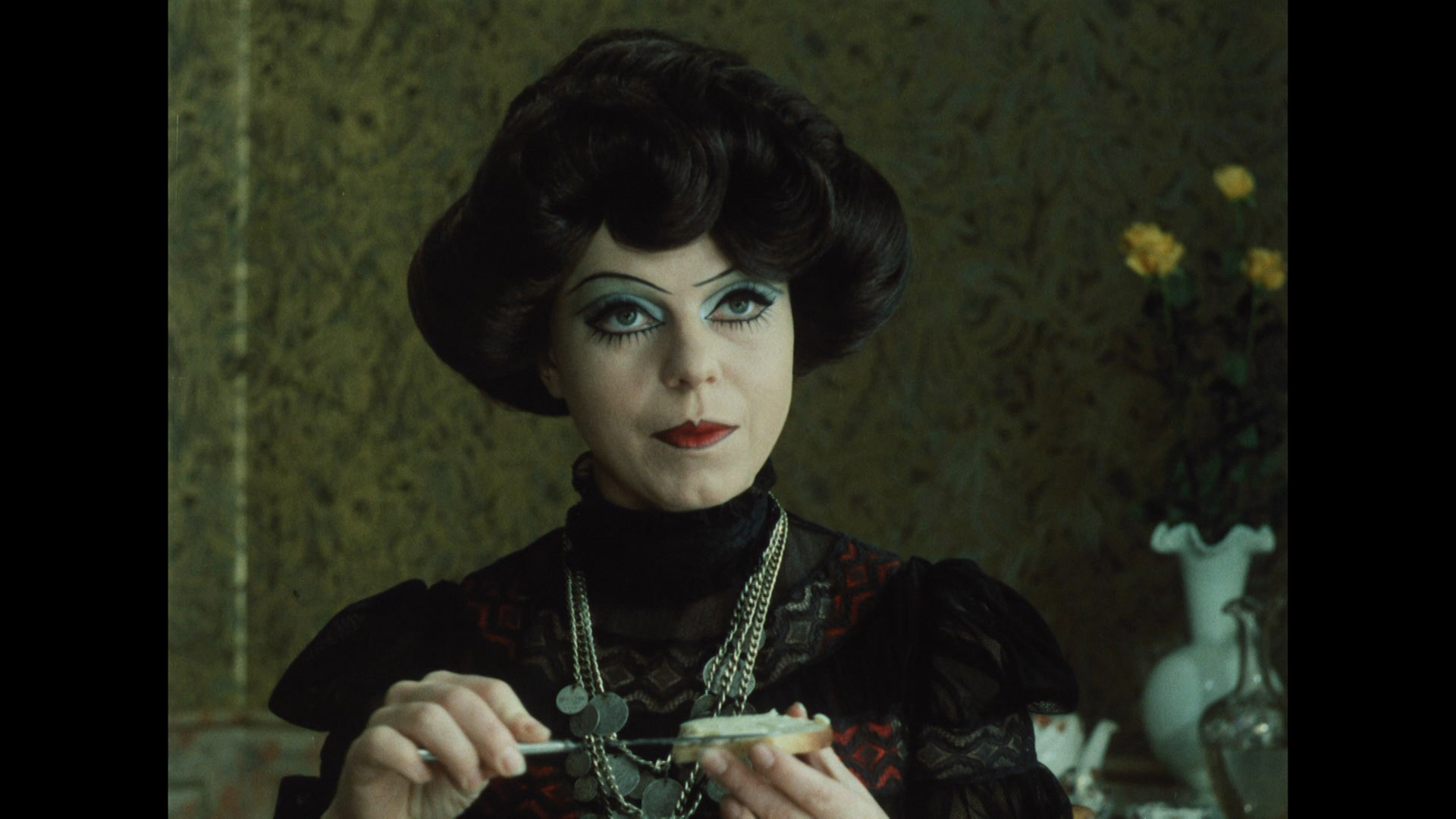
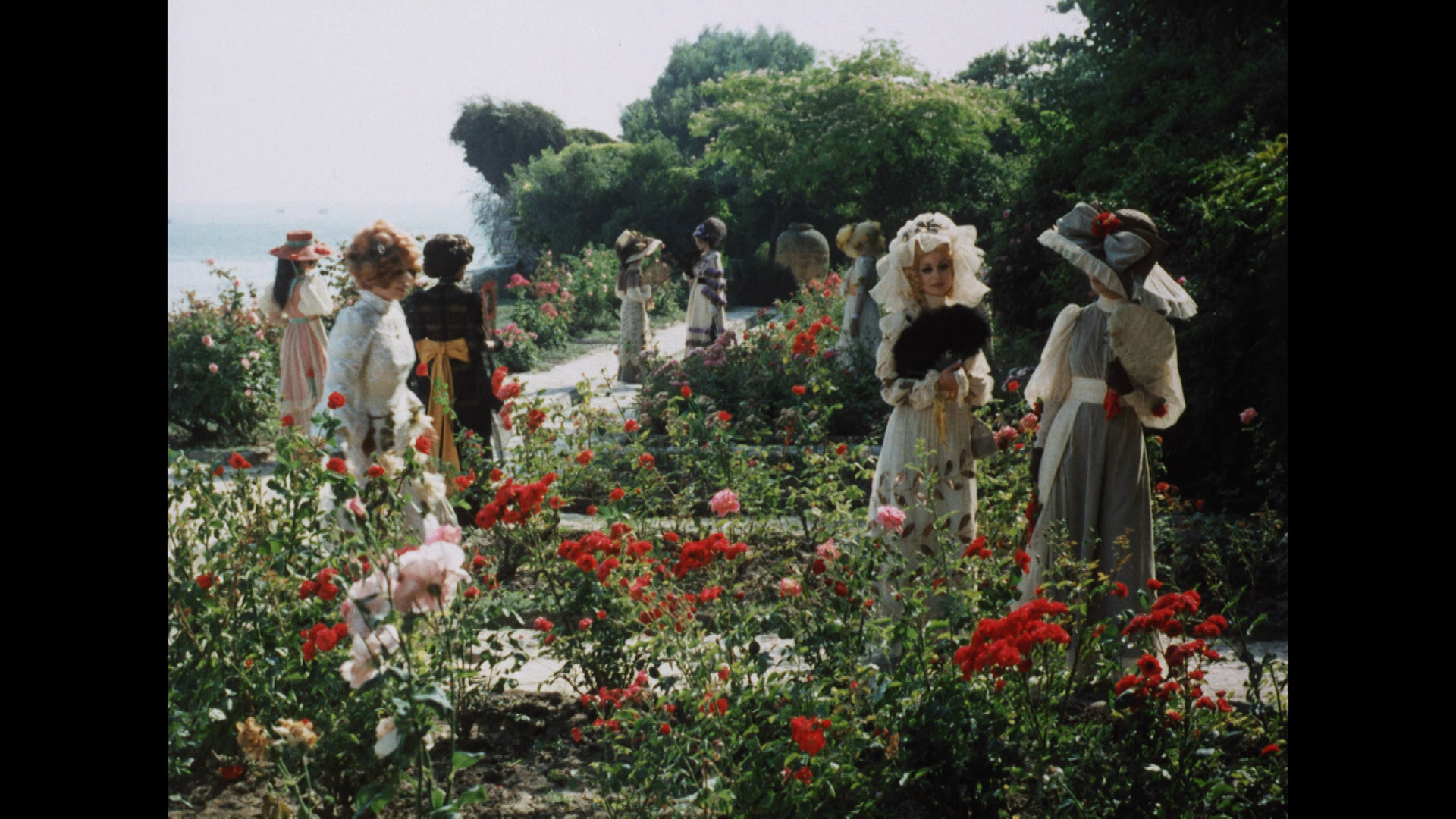
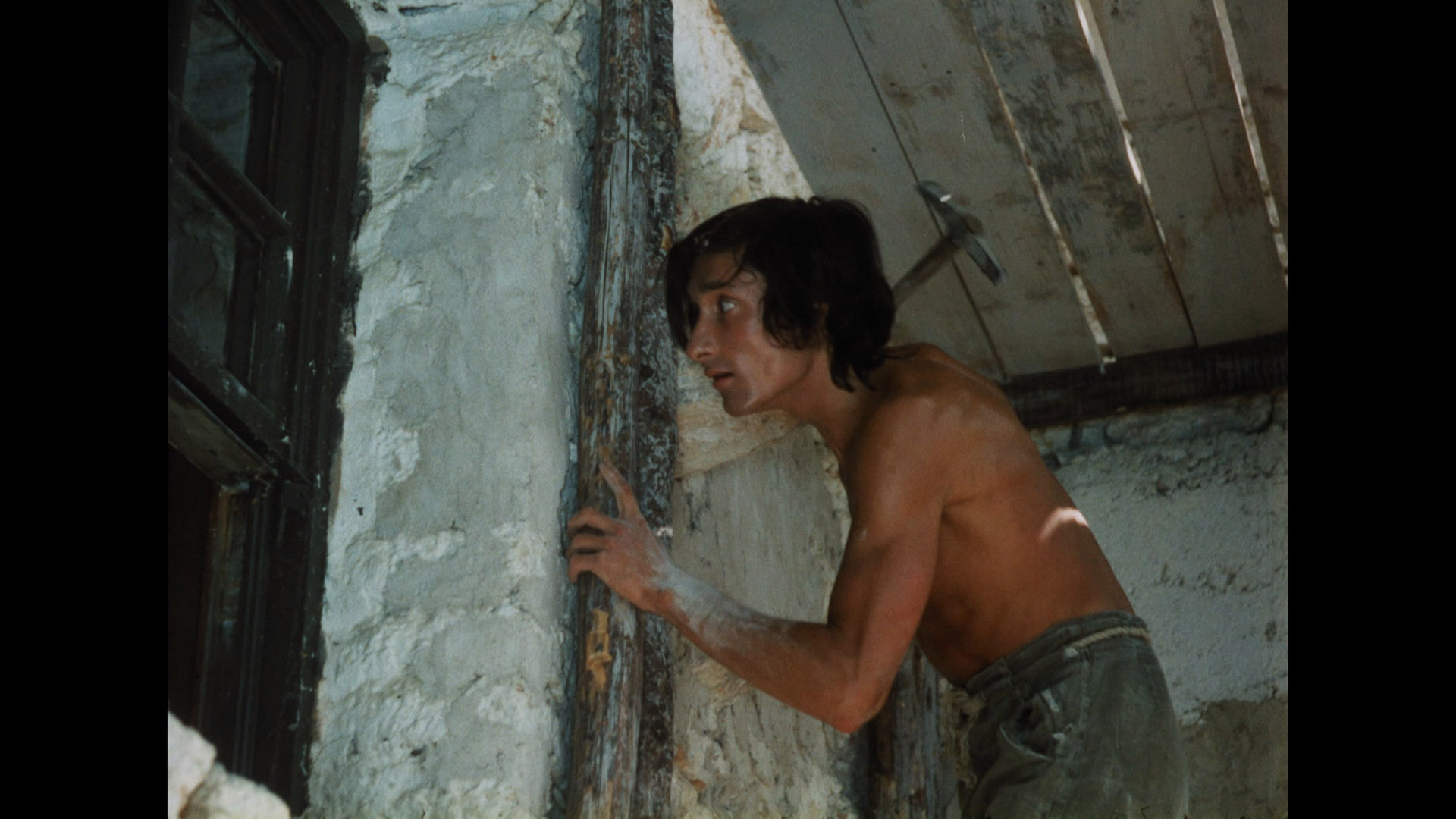
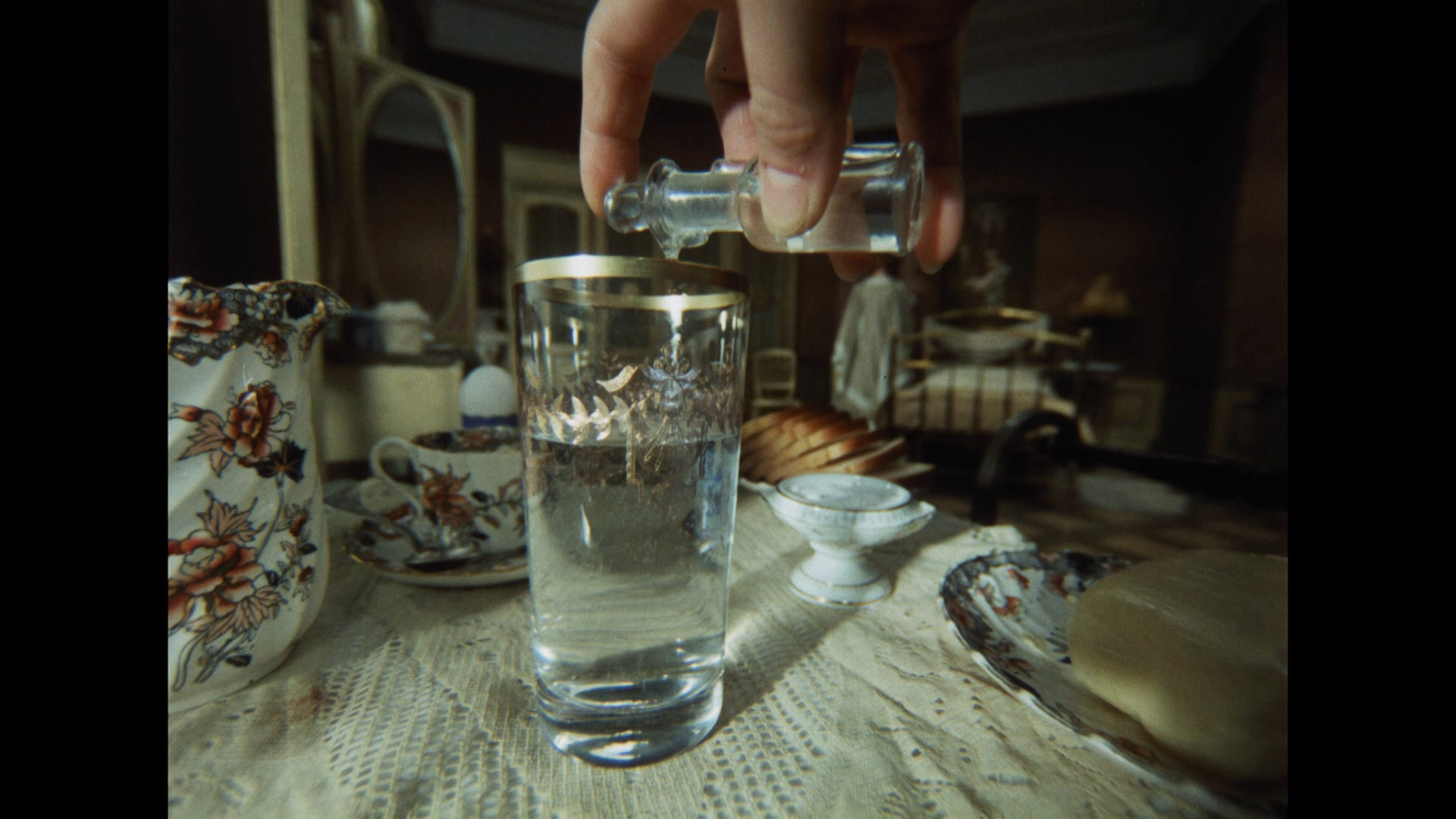
STUDIO HAMBURG ENTERPRISES (Blu-ray)
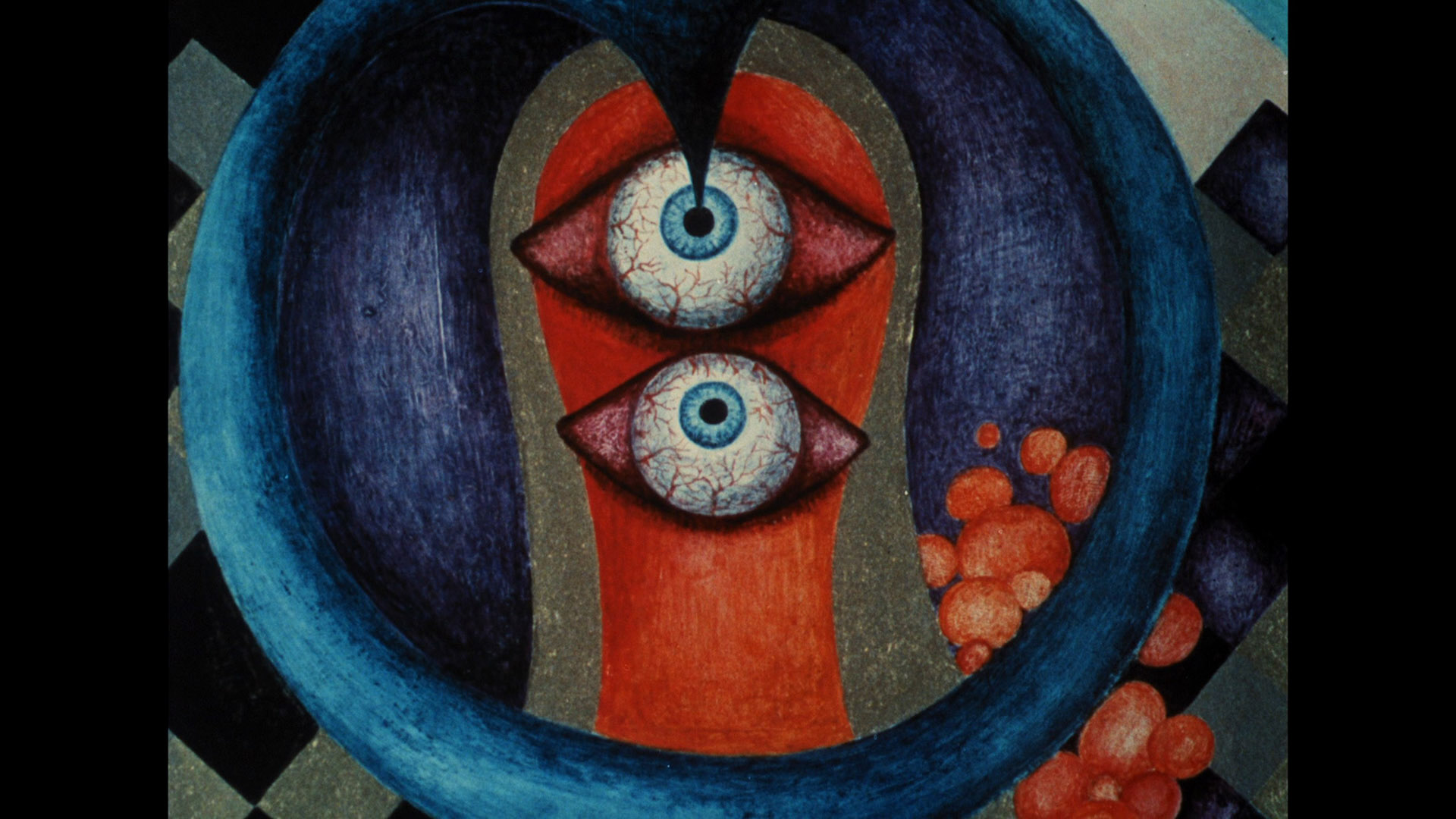
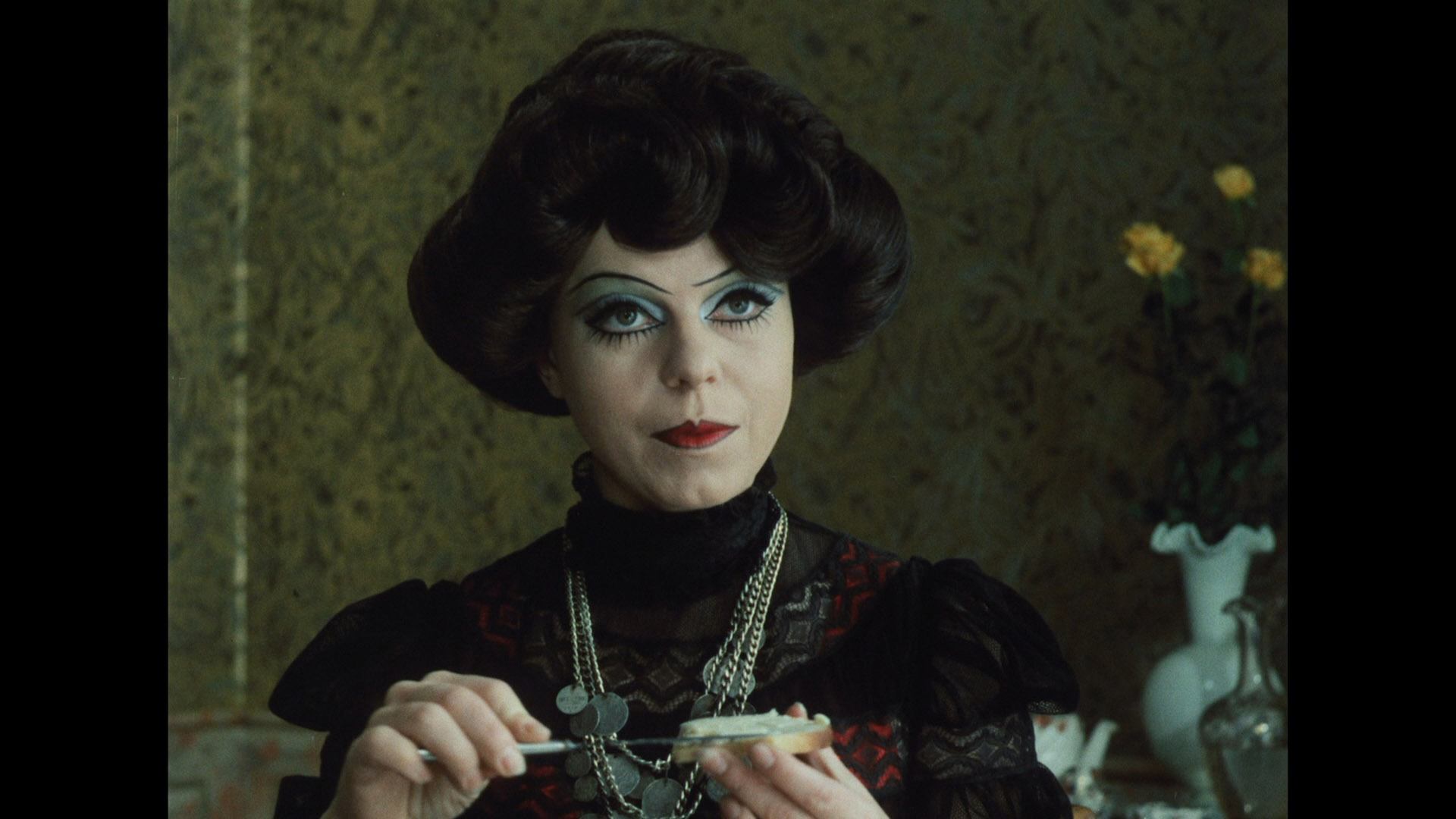
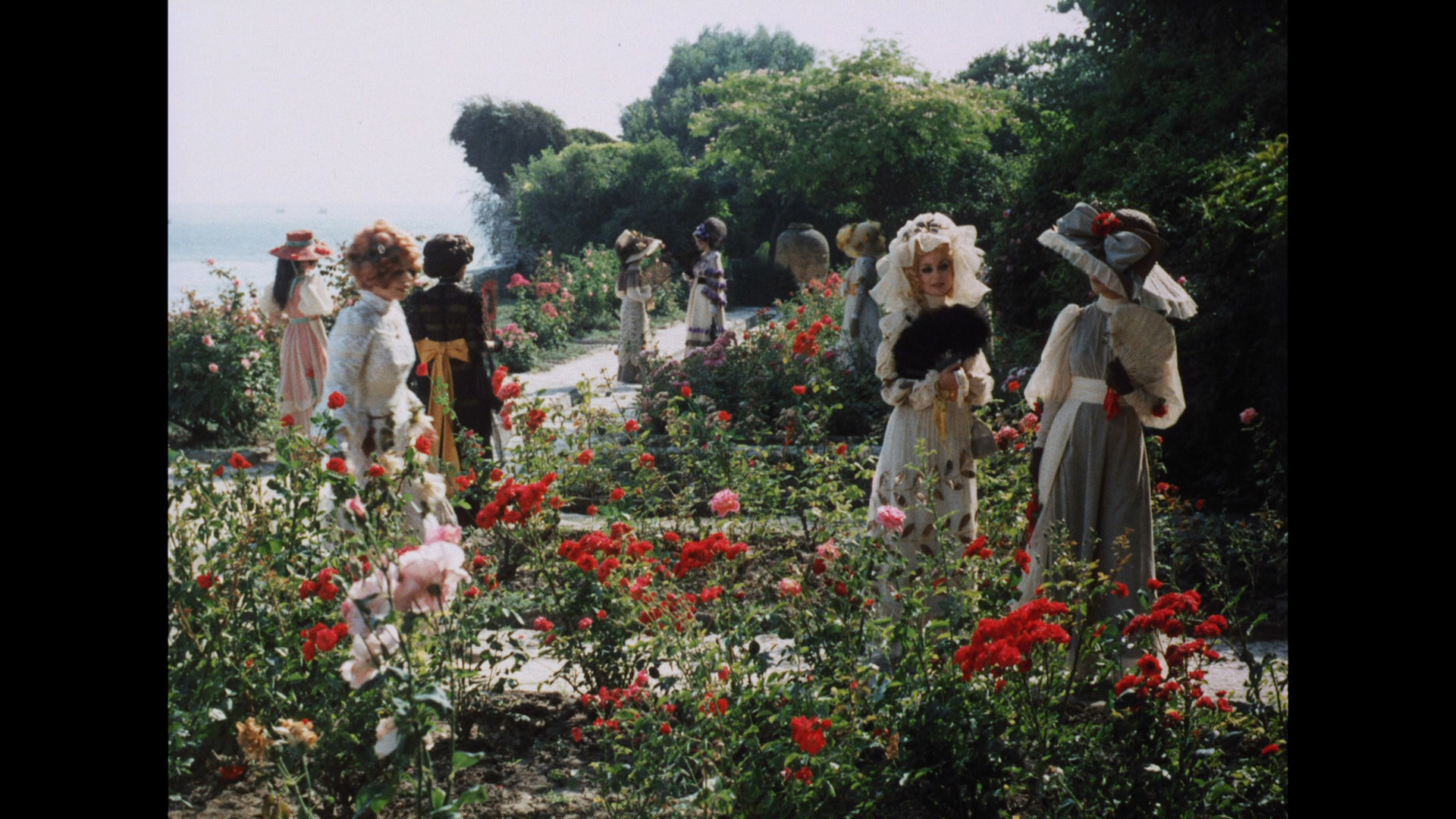
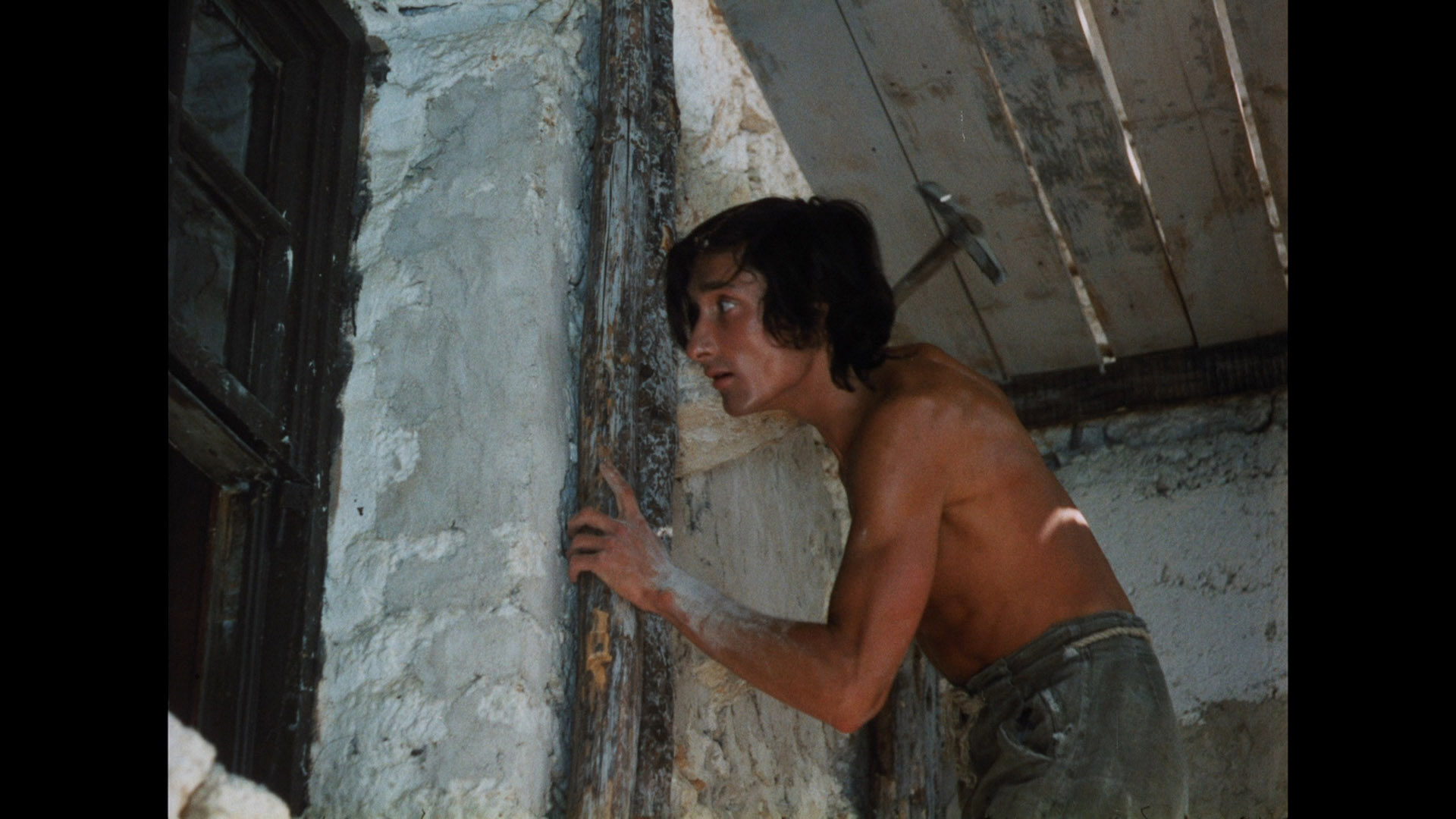
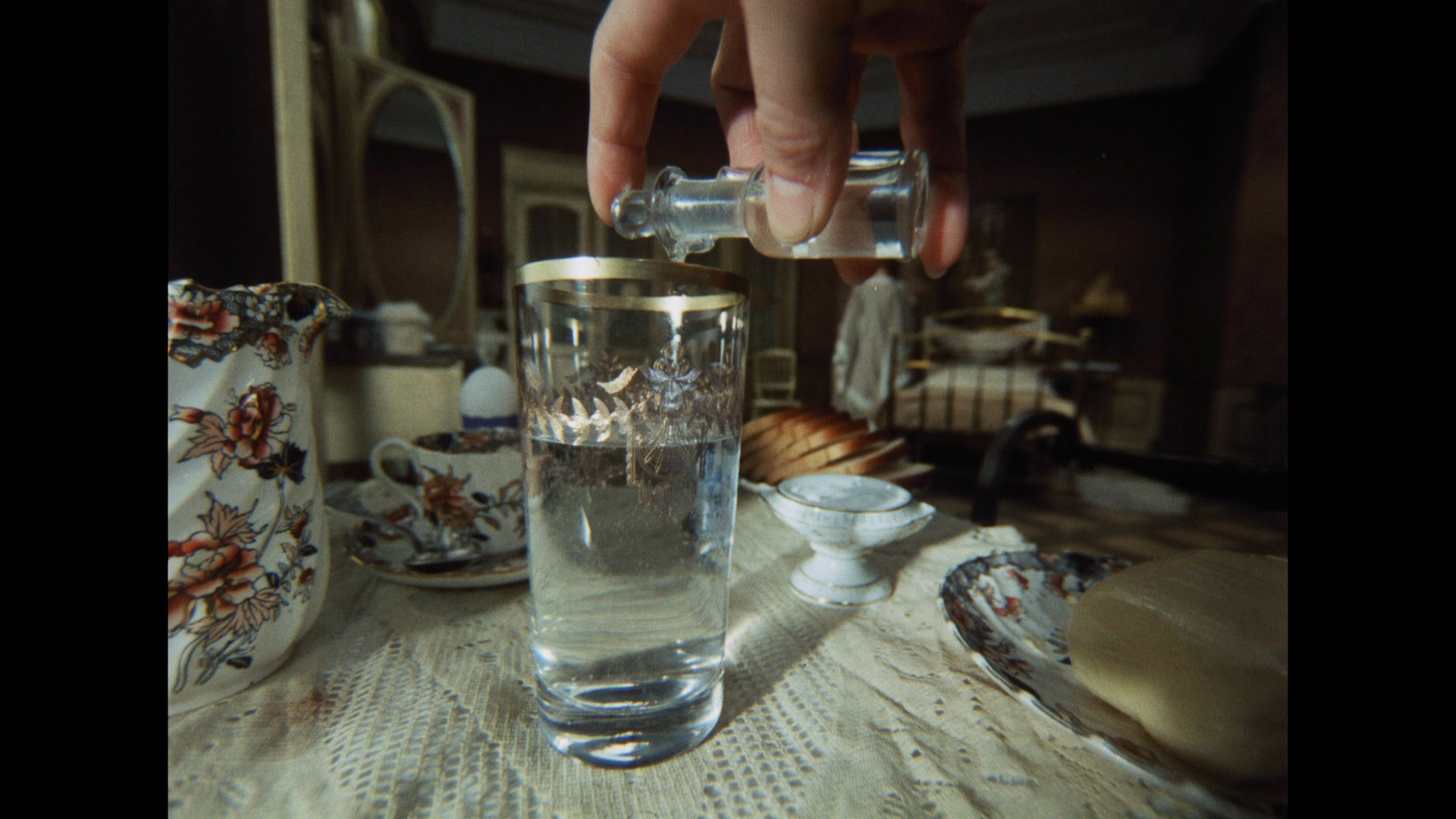
SECOND RUN (DVD)
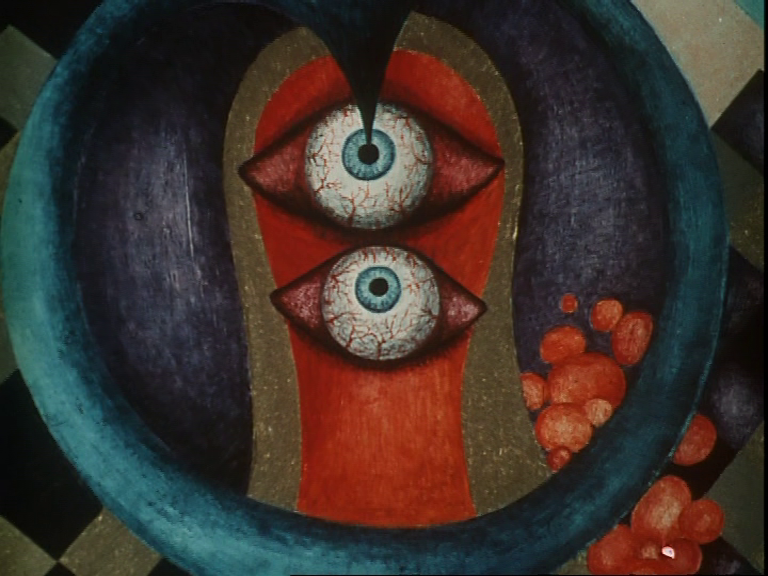
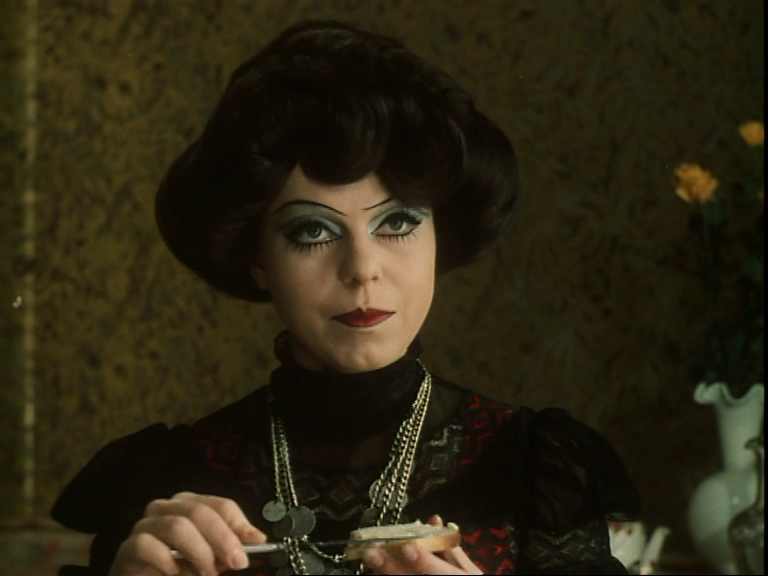
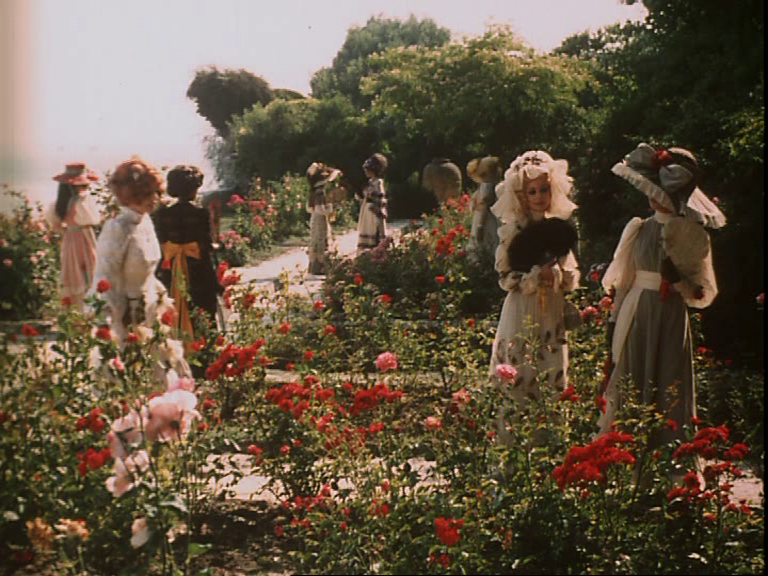
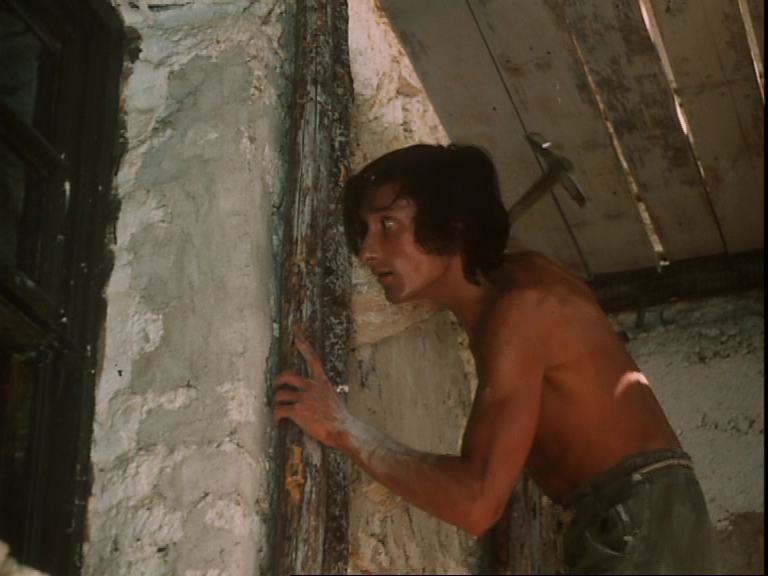
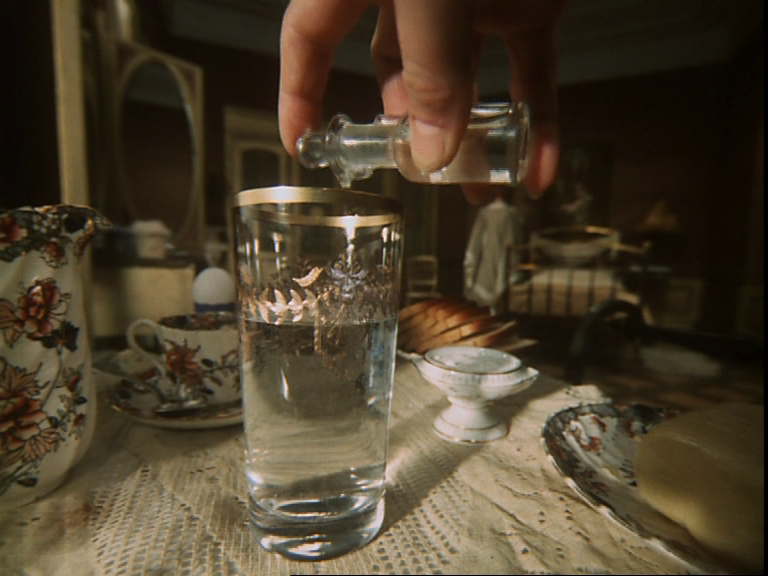
Reviewed on May 5, 2023.




 globally for his unforgettable The Cremator, Czechoslovak filmmaker Juraj Herz successfully traversed the worlds of the art house and
globally for his unforgettable The Cremator, Czechoslovak filmmaker Juraj Herz successfully traversed the worlds of the art house and  horror film several times over the course of his decades-long career from his macabre twist on Beauty and the Beast to 2009's Darkness. One of his finest films is 1972's Morgiana, a terrific little Gothic chamber piece that became a hit on the VHS bootleg circuit following a subtitled airing on Australia's SBS. An official DVD turned up in 2010 in the U.K. from Second Run, which catapulted the film's reputation even further and remains one of the label's most significant releases to date. Since then it's become a staple of discussions and retrospectives involving the Czechoslovak New Wave, though horror fans still haven't quite caught up to this one.
horror film several times over the course of his decades-long career from his macabre twist on Beauty and the Beast to 2009's Darkness. One of his finest films is 1972's Morgiana, a terrific little Gothic chamber piece that became a hit on the VHS bootleg circuit following a subtitled airing on Australia's SBS. An official DVD turned up in 2010 in the U.K. from Second Run, which catapulted the film's reputation even further and remains one of the label's most significant releases to date. Since then it's become a staple of discussions and retrospectives involving the Czechoslovak New Wave, though horror fans still haven't quite caught up to this one. out
out  two years later and nicely plays off both the look and performances of this film. Significantly it also features some nifty wide angle "cat cam" shots way before Lucio Fulci and Dario Argento dabbled with the same idea in their versions of Poe's "The Black Cat."
two years later and nicely plays off both the look and performances of this film. Significantly it also features some nifty wide angle "cat cam" shots way before Lucio Fulci and Dario Argento dabbled with the same idea in their versions of Poe's "The Black Cat."
 Fišer (which is available separately from Finders Keepers), an image
Fišer (which is available separately from Finders Keepers), an image  gallery, and clips from two other Herz films on Blu-ray, Beauty and the Beast and Ferat Vampire. In 2023, Second Run upgraded Morgiana to Blu-ray with an expanded special edition, featuring a virtually identical presentation as the prior Blu-ray thanks to a solid transfer "from the best existing original materials created by the Czech National Film Archive." Some occasional flecks pop up, but the color and detail are strong throughout with a more neutral, bright appearance compared to the yellow cast of the DVD. The Herz interview is ported over here as are the liner notes by Bird, augmented here with an additional essay by Ian Conrich, "A Czech Cinema of the Gothic," analyzing the themes of violence, obsession, and control in this film and The Cremator. Included here as an audio commentary track is a brisk 2020 episode of The Projection Booth podcast featuring Mike White, Kat Ellinger and Ben Buckingham waxing about all things Herz including their first encounters with this film, the necessities of multiple viewings, the issues that tripped up the project with the forces that be, and the finer points of Janžurová's remarkable performance(s).
gallery, and clips from two other Herz films on Blu-ray, Beauty and the Beast and Ferat Vampire. In 2023, Second Run upgraded Morgiana to Blu-ray with an expanded special edition, featuring a virtually identical presentation as the prior Blu-ray thanks to a solid transfer "from the best existing original materials created by the Czech National Film Archive." Some occasional flecks pop up, but the color and detail are strong throughout with a more neutral, bright appearance compared to the yellow cast of the DVD. The Herz interview is ported over here as are the liner notes by Bird, augmented here with an additional essay by Ian Conrich, "A Czech Cinema of the Gothic," analyzing the themes of violence, obsession, and control in this film and The Cremator. Included here as an audio commentary track is a brisk 2020 episode of The Projection Booth podcast featuring Mike White, Kat Ellinger and Ben Buckingham waxing about all things Herz including their first encounters with this film, the necessities of multiple viewings, the issues that tripped up the project with the forces that be, and the finer points of Janžurová's remarkable performance(s).![]()